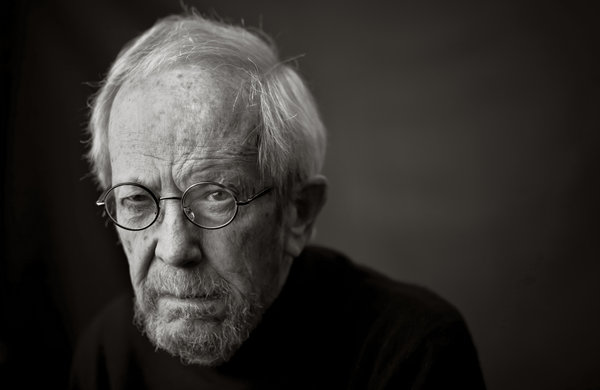
Elmore Leonard has died at the age of 87. First of all, it don’t matter if you won the lottery, got married, had septuplets, and found those pants you’ve always wanted at Filene’s in 2013, any calendar year in which we collectively lose both Richard Matheson and Elmore Leonard is a rotten goddamned year. Neither epic, epochal career is one that can be adequately summed up in the space of a single blog post, or twenty. It’s incalculable how much 20th century genre literature was defined and refined by these two authors and by only a few others in their league. While Matheson worked in the realm of horror and science fiction, Leonard roamed in the zone of crime novels, and in that territory, there was not a single one better.
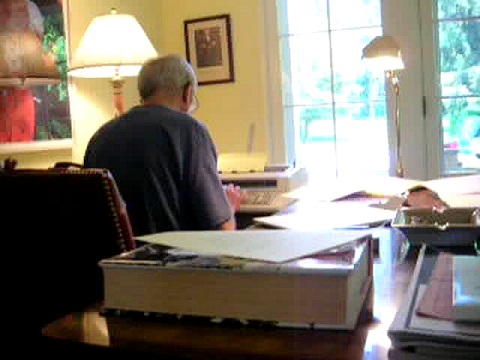
Elmore Leonard’s books are lively and energetic things, which means that while today we fans mourn — and offer our sincerest sympathies to his loved ones — tomorrow and every day thereafter, his prodigious body of work will live on, as relevant and as combustible as ever. Leonard is rightly heralded for his utter mastery of the art of dialogue — his every book manages to establish an unmistakable voice while containing a multitude of disparate characters. Leonard’s dialogue defines his characters, even when their words don’t line up neatly with their actions or intentions. He wrote about creeps, jerks, lowlifes, and even well-meaning sorts with equal confidence, directness, and authority. What the characters say and what the characters do are what happens in the books, and that’s mainly it and that’s all you need. No flowery prose, no showing off for the fancy-pantses. So many authors waste words, take them for granted, and in so doing they waste your time, but Elmore Leonard wasn’t about that for a second. Every word he chose furthered the story, always and ever putting story first. His books weren’t paperweights, they were concise documents of immense readability. So much work was already there on the page, but he made it look effortless and read like a dream. For this reason, he was a natural candidate for film adaptations.
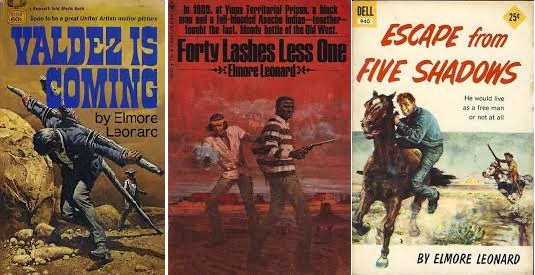
Do yourself a favor and pick up Leonard’s Western stories. That’s where he started and that’s where he first learned the economy of storytelling for which he eventually became widely regarded as a master. In those days, writing was a grind. The more stories you sold, the better, and the better the stories, well, that’s how you make a name. Some of the better-known movies that came from Leonard source material during that time were Budd Boetticher’s THE TALL T starring Randolph Scott and Delmes Daves’ 3:10 TO YUMA starring Glenn Ford and Van Heflin, and later remade with Christian Bale and Russell Crowe. The movies are solid, but there’s easily as much fun to be had in the books they came from.
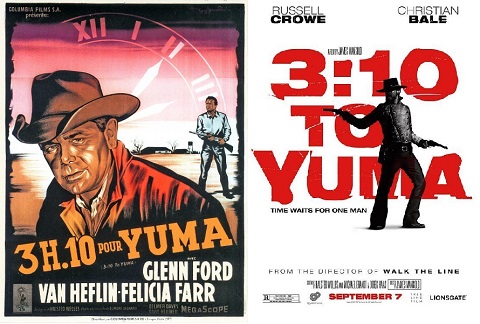
In the late 1960s, Leonard transitioned to the crime genre for which he is primarily known. THE BIG BOUNCE was the first of them, and it became a movie (twice), followed by THE MOONSHINE WAR, also a movie. VALDEZ IS COMING, a Western, starred Burt Lancaster. MR. MAJESTYK was a Charles Bronson joint. 52 PICK-UP was filmed twice, first as THE AMBASSADOR with Robert Mitchum, then under its original title with Roy Scheider. By the late 1970s, Leonard, famously dissatisfied with most of the film adaptations of his work, either for that reason or for some combination of others flipped a switch and became as insanely prolific as we have known him to be for the past three decades, firing off a terrific crime novel every year or two. Leonard’s books are stuffed with rich and fascinating characters, the kind actors love to play, but his very particular tones and rhythms were understandably hard to translate to cinema.
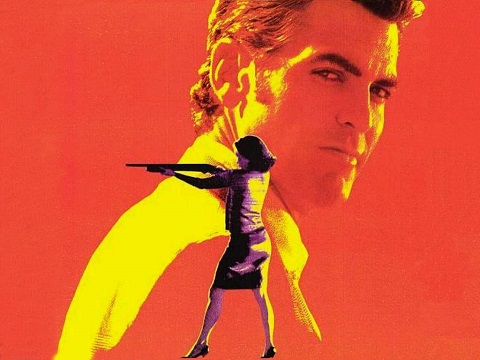
A trio of adaptations in the 1990s finally did Leonard’s style some justice. First there was 1995’s snappy and funny GET SHORTY, adapted by Scott Frank and directed by Barry Sonnenfeld, with a particularly energized cast including John Travolta, Gene Hackman, Danny DeVito, Rene Russo, Dennis Farina, Delroy Lindo, and James Gandolfini. Scott Frank also adapted 1998’s OUT OF SIGHT, with Steven Soderbergh directing, featuring the best-ever performance from Jennifer Lopez and a down-and-out take on the charming bank-r0bber archetype from George Clooney. (To this day I could swear Clooney read the book, where Leonard describes Jack Foley as a Harry Dean Stanton type, and honored the book with a performance using some Stantonisms.) Then there was 1997’s JACKIE BROWN, arguably the best movie Quentin Tarantino has made to date, certainly the most profound, and that is not uncoincidentally due to its potent sense of inspiration from the source novel, RUM PUNCH, and the long history of Leonard characters in previous books.
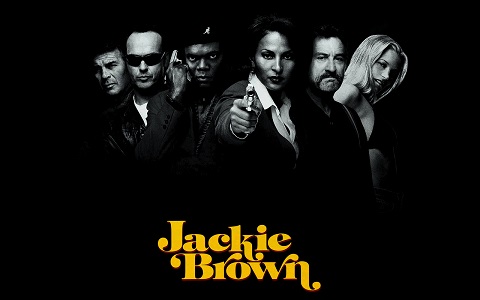
These films finally raised Elmore Leonard’s profile to the stature he deserved. While there hasn’t been a truly significant movie made from his work since, two interesting things happened over the past decade-and-a-half: One, Leonard branched out, writing a couple books (such as PAGAN BABIES, DJIBOUTI, and TISHOMINGO BLUES) that melded his typical crime plotting with global, sociopolitical, and historical concerns. He even wrote a children’s book (A COYOTE’S IN THE HOUSE). And then, in 2010, the TV series JUSTIFIED, starring Raylan Givens, a recurring character in Leonard’s books PRONTO and RIDING THE RAP, arrived to great acclaim. The show excellently captures Leonard’s storytelling sense, with a sense of local Kentucky detail that rivals Leonard’s own ability to conjure his native Detroit and well, everywhere else he writes about. Timothy Olyphant, as Raylan, brings an Eastwood swagger to what is basically A FISTFUL OF DOLLARS meets THE SOPRANOS, effectively welding the multiple facets of Leonard’s career. Leonard considered JUSTIFIED to be one of the best of the many adaptations of his work.
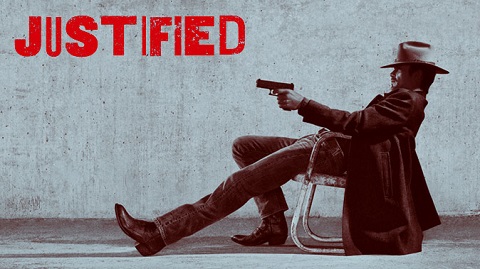
Elmore Leonard is a massively important figure in American popular culture. He is the kind of writer who is as instructive and inspirational to aspiring and professional writers as he is popular and accessible to mainstream audiences. You can’t go far into any review of or reaction to his work without hearing the word “cool.” Elmore Leonard is cool. His books are cool. He doesn’t fake the funk. There’s an integrity to his writing, his authorship, the kind that only comes when you know you know what the hell you’re talking about. You can tell from any three sentences of his stories that he did the research, and more importantly, that he is a person who listens. The greatest writers are the ones who pay attention, who observe how real people act and who absorb how they talk. And Elmore Leonard, beyond a shadow of any doubt, is one of the greatest of the greatest.
Rest In Peace, Dutch.
Love, Your Pals At Daily Grindhouse.

@jonnyabomb
- [THE BIG QUESTION] WHAT’S YOUR FAVORITE FEMALE ENSEMBLE IN MOVIES? - July 22, 2016
- [IN THEATERS NOW] THE BOY (2016) - January 24, 2016
- Cult Movie Mania Releases Lucio Fulci Limited Edition VHS Sets - January 5, 2016
Tags: Elmore Leonard, Tributes

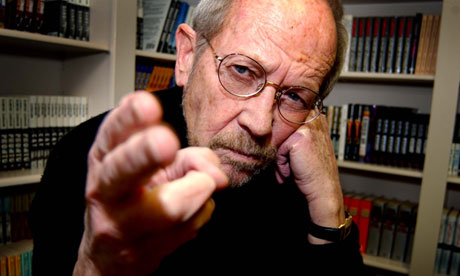




One Comment